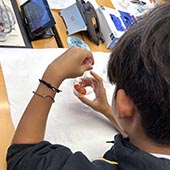
News and Announcements


Meet the Researchers: Jes Sanders
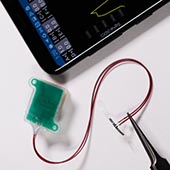
Implant and app enables patients to monitor bladder function
Researchers led by SQI members Guillermo Ameer, John Rogers and Arun Sharma have developed a new soft, flexible, battery-free implant that attaches to the bladder wall to sense filling. Then, it wirelessly transmits data to a smartphone app, so users can monitor their bladder fullness in real time.
While this new device is unnecessary for the average person, it could be a game-changer for people with paralysis, spina bifida, bladder cancer or end-stage bladder disease. The sensor system also can enable clinicians to monitor their patients remotely and continuously to make more informed — and faster — treatment decisions.
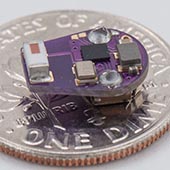
Implantable sensor could lead to timelier Crohn’s treatment
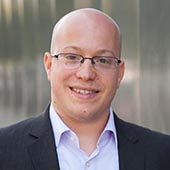
Polymer electronics feel strain and evolve during operation
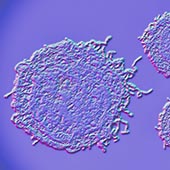
Outsmarting chemo-resistant ovarian cancer
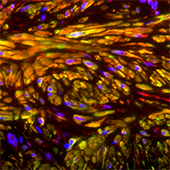
Synthetic ‘bladder patch’ promotes tissue regeneration, restores function

Hersam elected to National Academy of Engineering

SQI announces first round of Synthesizer Research Grants
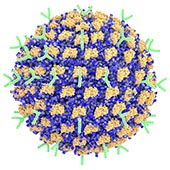
Decorated nanoparticles prevent allergic reactions
Northwestern University researchers led by SQI member Evan Scott have developed the first selective therapy to prevent allergic reactions, which can range in severity from itchy hives and watery eyes to trouble breathing and even death.
To develop the new therapy, researchers decorated nanoparticles with antibodies capable of shutting down specific immune cells (called mast cells) responsible for allergic responses, as well as an allergen that corresponds to the patient’s specific allergy. In this two-step approach, the allergen engages the precise mast cells responsible for the specific allergy, and then the antibodies shut down only those cells.
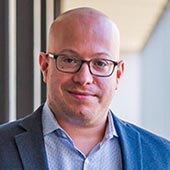
Building teams for high-risk, high-reward research projects

Kelley elected to National Academy of Inventors

Ameer elected a Biomaterials Science and Engineering Fellow
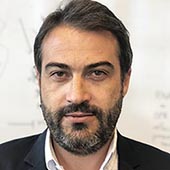
Studies identify novel underpinnings of genetic ALS
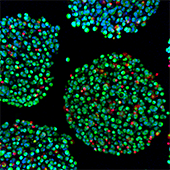
A breath of fresh air keeps drug-producing cells alive longer
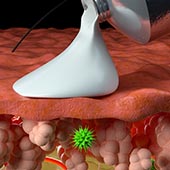
‘Super melanin’ heals skin injuries from sunburn, chemical burns
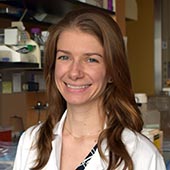
Meet the Researchers: Cara Smith
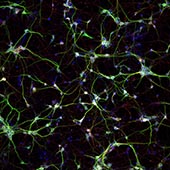
Developing new approaches for spinal cord injury
Northwestern researchers led by SQI director Samuel Stupp have developed a molecular “scaffold” capable of enhancing electrical activity and growth in neurons, which may prove useful in treating spinal cord injuries. The scaffolds were composed of a novel nanofiber that mimics the bioactivity of the protein netrin-1 and sustainably delivers signals to neurons over long periods of time.
SQI members Evangelos Kiskinis and Zaida Alvarez were coauthors of the paper, which was published in ACS Nano.

Identifying molecular culprits underlying organ rejection
A research team including SQI member Zheng Jenny Zhang has identified how the immune system can regulate organ rejection in mice, which may prove useful for improving transplant tolerance in humans.
The findings suggest that priming T-cells of transplant recipients with repeated injections of antigens from their organ donor may help the recipient’s body avoid organ rejection resulting from infection. The results of the study also identify donor MHC class II as a problematic antigen that may be a cause of rejection after severe infections.
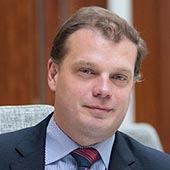
Protein-like polymers illuminate the path to macular degeneration treatment

Ameer wins BMES medal for translational bioengineering
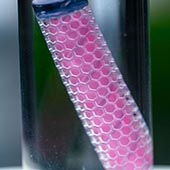
Small, implantable device could sense and treat cancer

Ameer wins Excellence in Biomaterials Science Award
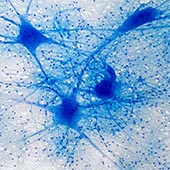
‘New’ ALS gene destabilizes neuron’s structure and chokes off its nucleus
